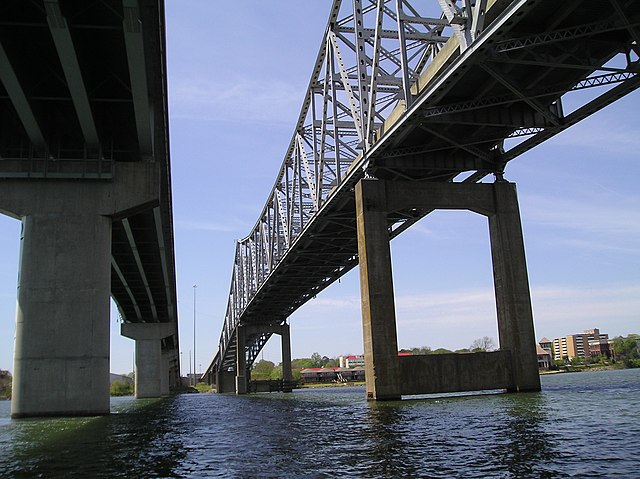Captain William J. Hudson "Steamboat Bill" Memorial Bridges
The "Steamboat Bill" Memorial Bridges are two bridges that span one of the widest points along the Tennessee River within the city of Decatur, Alabama, between Morgan County, and Limestone County. One is a cantilever truss, and the other is a reinforced concrete. The bridges carry US 31, US 72A, and State Route 20 from the intersection of Wilson Street, and 6th Avenue in northeast Decatur.
Captain William J. Hudson "Steamboat Bill" Memorial Bridges
The Tennessee River is the largest tributary of the Ohio River. It is approximately 652 miles (1,049 km) long and is located in the southeastern United States in the Tennessee Valley. The river was once popularly known as the Cherokee River, among other names, as the Cherokee people had their homelands along its banks, especially in what are now East Tennessee and northern Alabama. Additionally, its tributary, the Little Tennessee River, flows into it from Western North Carolina and northeastern Georgia, where the river also was bordered by numerous Cherokee towns. Its current name is derived from the Cherokee town, Tanasi, which was located on the Tennessee side of the Appalachian Mountains.
The Tennessee River in downtown Chattanooga
The Tennessee River flowing through the Tennessee River Gorge.
The "Steamboat Bill" Hudson Memorial Bridge in Decatur, Alabama.
Natchez Trace Parkway, crossing the Tennessee River in Cherokee, Alabama




